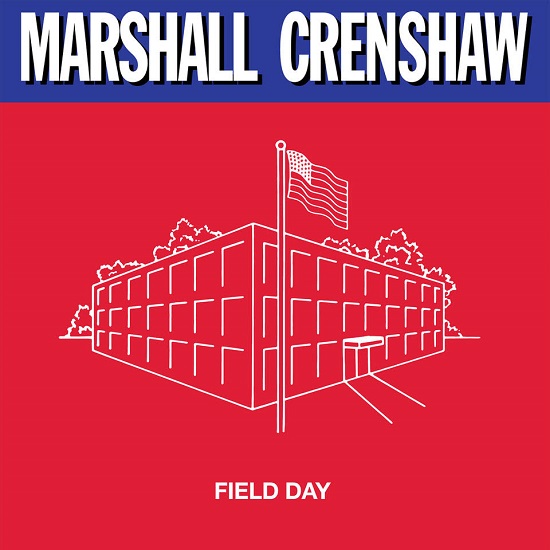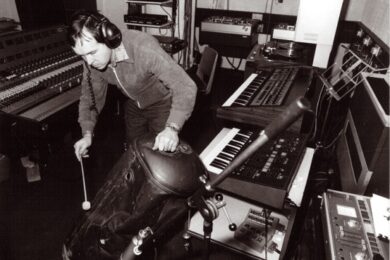Observe the persistence of Marshall Crenshaw along the wine festival and county fair circuit these days and it’s all too easy to dismiss him as another dad-approved also-ran of that anemic, derivative early 80s phenomenon remembered as power pop. His example has yet to be noticed, much less revered, by younger generations of bands.
But listen to Crenshaw’s second album, 1983’s Field Day, and a different profile emerges. Here is a 29-year-old songwriter of almost pitiable earnestness and ambition, beholden to no scene, looking less like a reincarnated Buddy Holly than a young Noam Chomsky signed to Sun Records. For all that, Field Day is a set of focused, radio-ready songs that realize new wave’s traditionalist tendency in bright color and high definition.
It could have been hot garbage without Steve Lillywhite’s production. Fresh off Big Country’s The Crossing, Lillywhite nixed the reediness of Crenshaw’s debut album for a characteristically drumhead-busting sound full of reverb, echo, multi-tracked choruses, portentous intros, and tube-warmed guitars. For the first time, there’s room for Crenshaw to fill out his presence on record by singing to the reaches of his ability; on tracks like ‘For Her Love’ and ‘All I Know Is Right Now’ he sounds large and in charge, more in the room than footage from that period shows, eyes hidden behind dark glasses at the head of a AA battery-powered trio.
Robert Christgau, reviewing Field Day for the Village Voice, likened Crenshaw to “a singing mannequin dressed up in a booming wardrobe of sound,” but the mannequin himself more recently looked back on Lillywhite’s production as “a thunderstorm in a rainforest.” Either way, the fullness and snap of these songs is invigorating 35 years later. Records by The Plimsouls, The Three O’Clock, The Romantics, and most other American guitar groups from the class of ‘83 haven’t fared so well by comparison.
Longing is Crenshaw’s overwhelming subject, from ‘One Day With You’ (“For one day with you/ I would break off any strange engagement”) to ‘Try’ (“The way you move me is a serious thing… Let’s wait and see what tomorrow might bring”) to the single ‘Whenever You’re On My Mind’ (“I think about you and I’m weak though I’m in my prime”).
And then there’s ‘Our Town’, a taut, revving little masterpiece that could never be waved off as revivalist pabulum. “I hear something in the sounds that surround me”, he sings, “that only seems to remind me/ that I’m lost and longing for a different place and time.” That line would corroborate Crenshaw’s image as a sentimental old soul if he was pining for the Detroit suburb where he grew up (and whose high school is rendered on the album’s cover), or for some mythical Middle American hamlet like the one in Thornton Wilder’s saccharine drama of the same name. But no, it’s the “tall buildings,” “sirens crying,” and “people rushing madly all around” of New York City he’s describing – the opposite of American rock’s burgeoning fixation on “the heartland” that would preoccupy indie and mainstream musicians alike in the middle of the decade.
With this new edition featuring a bonus LP, revised cover art, and 180-gram vinyl, the fastidious reissue label Intervention has made a case for Field Day as a lost classic. Crenshaw can’t be said to have been ahead of his time, but he wasn’t nearly so hapless as to have been behind it either. Field Day finds him in perfect alignment with rock’s past and present – still a nerd, maybe, but ruling the school at last.



